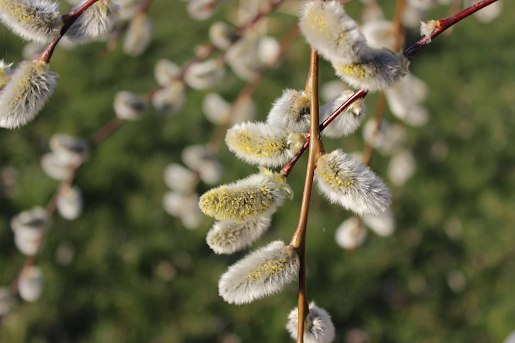The roots of Ukrainian customs date back centuries, but at the same time, they remain no less popular nowadays. Most of them are rooted in the Christian religion or historical circumstances that made Eastern European culture differ from the Western side drastically. Ukrainians pay great attention to the observation of customs, as they are unique and extremely peculiar – even absurd sometimes.

Having fun on Maslenitsa
Maslenitsa is a holiday celebrated during the last week before the Great Lent. The people say goodbye to winter and greet spring, bake pancakes and organise festivals. This custom appeared during the times of Kievan Rus, as the pancake was considered a symbol for the sun (ruddy and round). Every day during pancake week, there is a particular ritual. For instance, on Monday, everyone prepares for the holiday; during the weekdays, it is time to enjoy pancakes (sour cream and red caviar fillings are especially popular). Meanwhile, Sunday is called Forgiveness Day – a day when people ask for forgiveness from relatives and friends.

Jumping over the bonfire
Kupala Night is a holiday associated with the period of the summer solstice. It is celebrated on the night of July 7th. During this time, according to legends, many magical plants are growing; therefore, Ukrainians believe that whoever finds a blooming fern in the forest will be rich and happy for the rest of their life. Girls throw wreaths in the water, and whoever’s wreath travels the fastest will get married soon. Another important ritual is burning bonfires. The belief is that these fires have healing powers; you will be cleansed from sins and cured of illnesses.

Singing Christmas carols
Christmas Eve’s Kolyadkas (carols) are one of the most beautiful customs in Ukraine and an integral part of the celebration. Kolyadnyky (carolers) go to the yards and houses of neighbours, sing carols, and wish prosperity and health to all family members. In the past, particular attention was paid to costumes: fur coats inside out, masks of animals, and bags for collecting gifts. But today, the costumes are not that important. Among Ukrainians, the belief is that the more Kolyadnyky that come to your dwelling, the better and fruitful the year will be. In turn, owners must give money to carolers or at least treat them with sweets.
Plunging into an ice hole
Every year on January 19th, on the day of the Christianisation of Kievan Rus, Ukrainian Christians jump into an ice hole. At night, people break through the ice and create a hole in the form of a cross and later dive into the water three times. They believe that the water has healing properties, and by plunging into the icy river, all the sins and illnesses will be cured. This event occurs every single year, and locals queue to dive in.

Greeting people with bread and salt
Ukrainian people are very family oriented. For this reason, most customs are related to family holidays or events. One of them came from the Kievan Rus period when people greeted their most honourable guests with bread and salt. It turns out that if the hosts offered this combination of goods, they wished wealth (bread is a symbol of wealth) and banished evil spirits (salt is a symbol of the purity of the soul). Nowadays, Ukrainians have made this custom simpler; however, bread and salt are always put on the table when guests arrive.

Painting and beating eggs
Starting the Easter celebration with an egg (pysanka) is a custom that has been in Ukraine since ancient times, as it symbolised the germ of a new life. People paint the shell of an egg in bright colours by using wax paints, with each colour signifying a different meaning (red is the joy of life; yellow is sunlight; blue is for health). After receiving their colourful adornments, they are then considered sacred, together with the Kulich (Easter cake) in the church. Later at home, everyone eats national holiday dishes – holodets (frozen pork broth), homemade sausages and more. Children usually play the game called beats; they knock each other’s egg. Whoever’s egg breaks is the loser.

Striking the family with willow twigs
On Willow Sunday, which in Ukraine is called the Verbna Nedilya, people commemorate the date of Jesus’ entry into the city of Jerusalem. In Western countries, this day is called Palm Sunday, but because there is no palm in Ukraine, locals replaced it with a willow branch. As such, there is an ancient custom that suggests striking your family members with a pile of willows, as the consecrated willow has a purifying power and heals all diseases and evil spirits.

Немає коментарів:
Дописати коментар